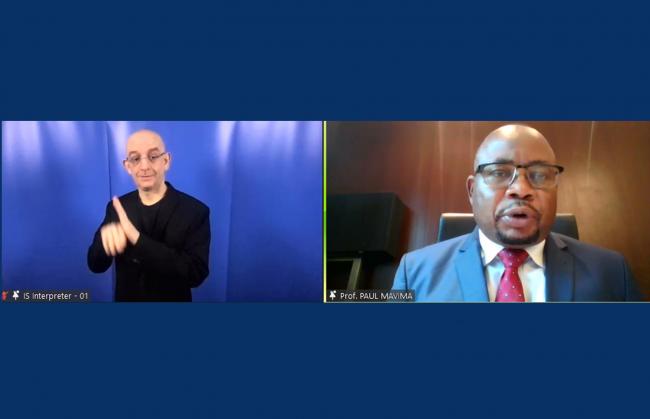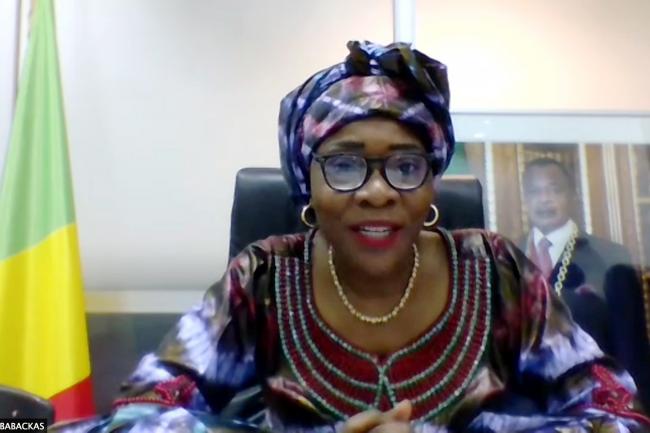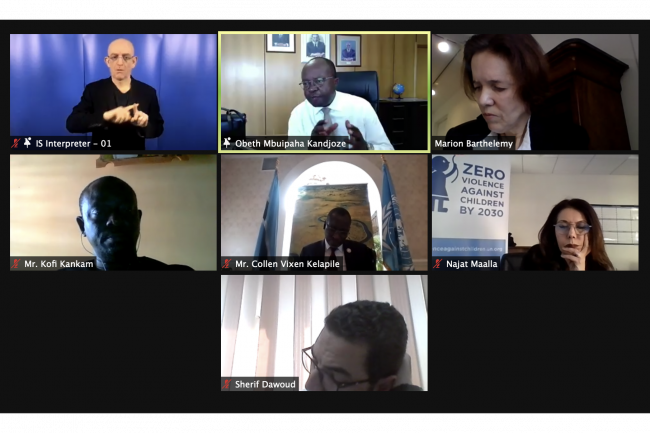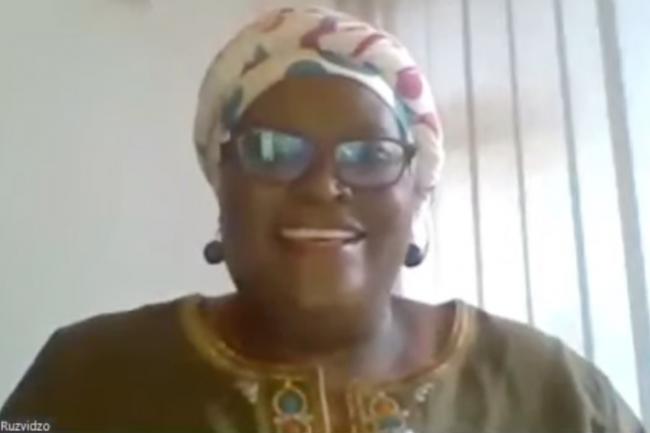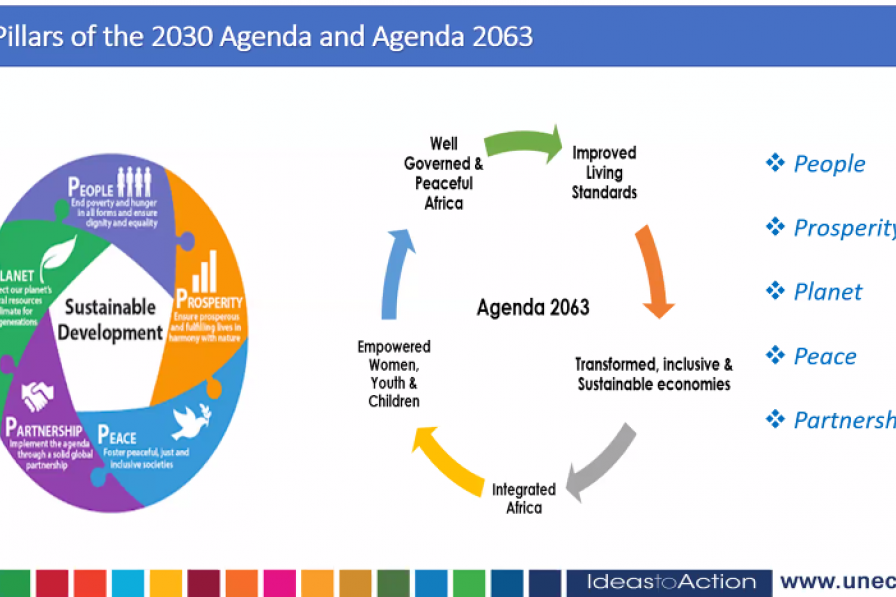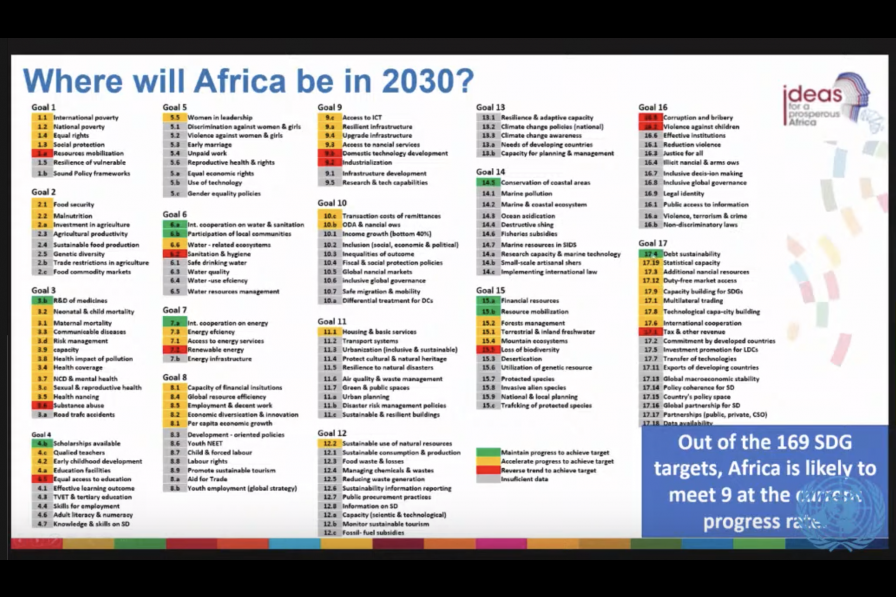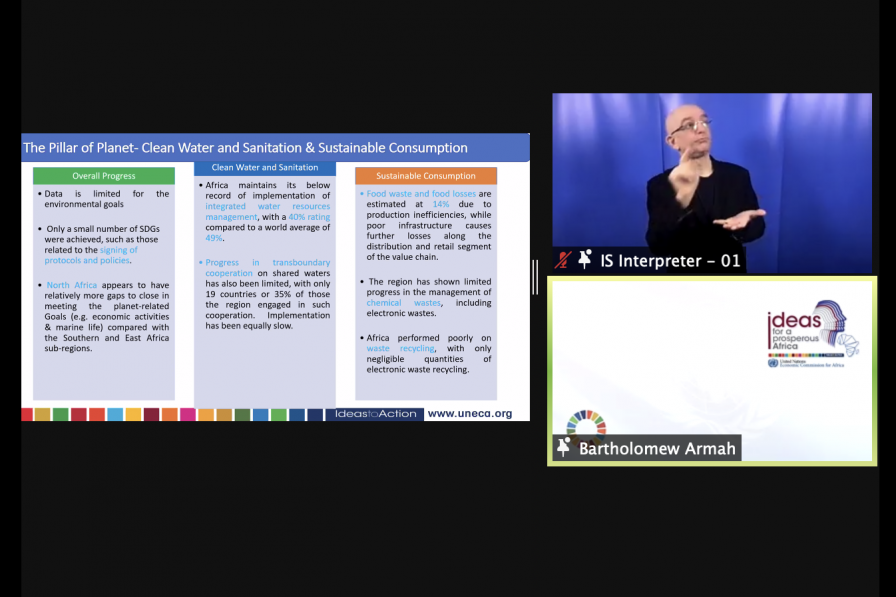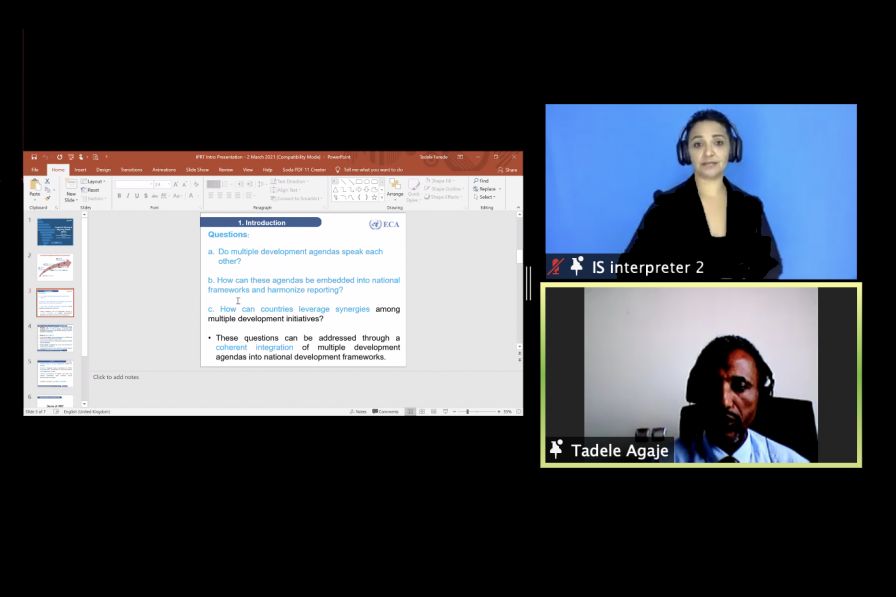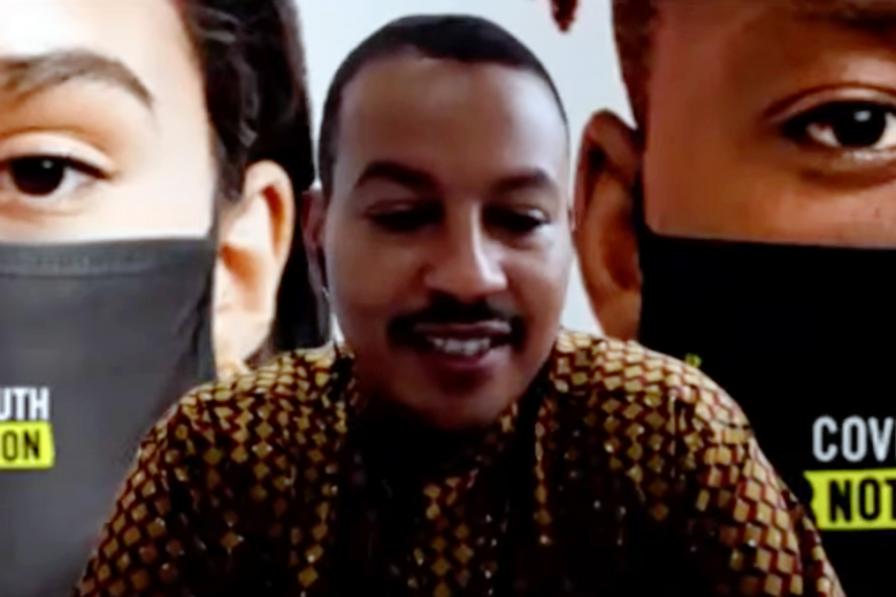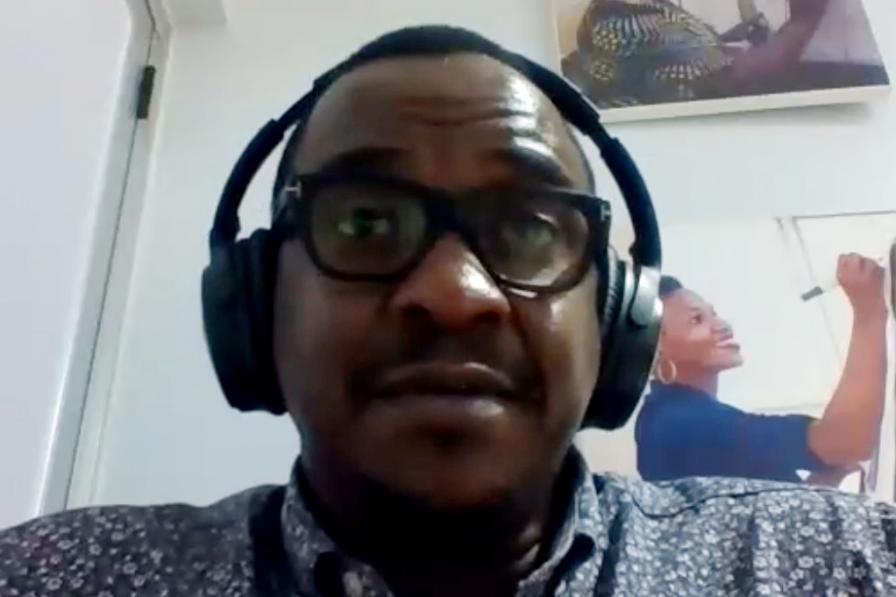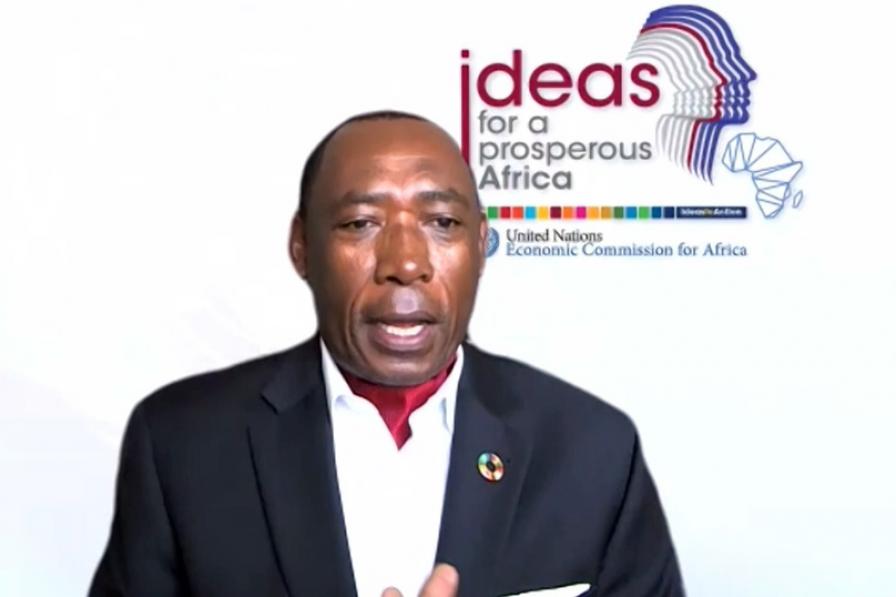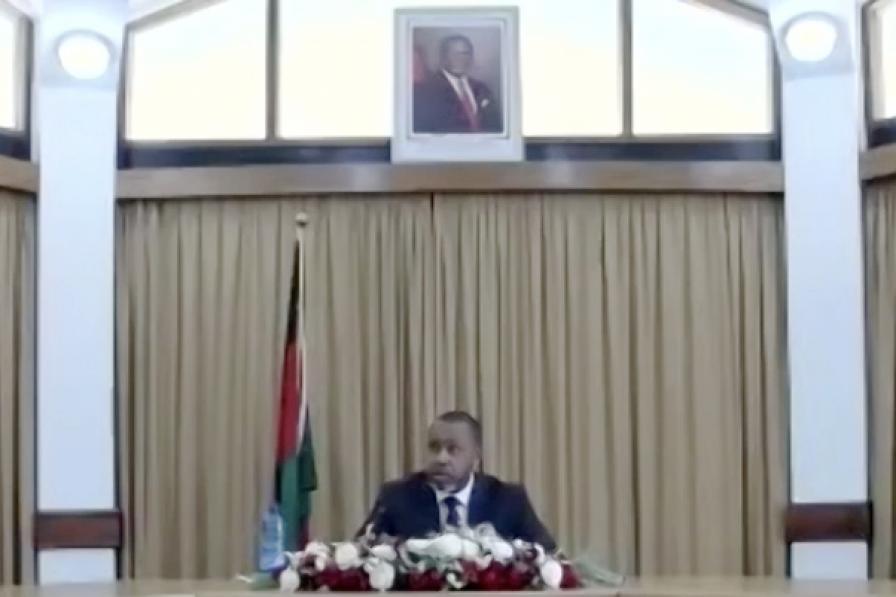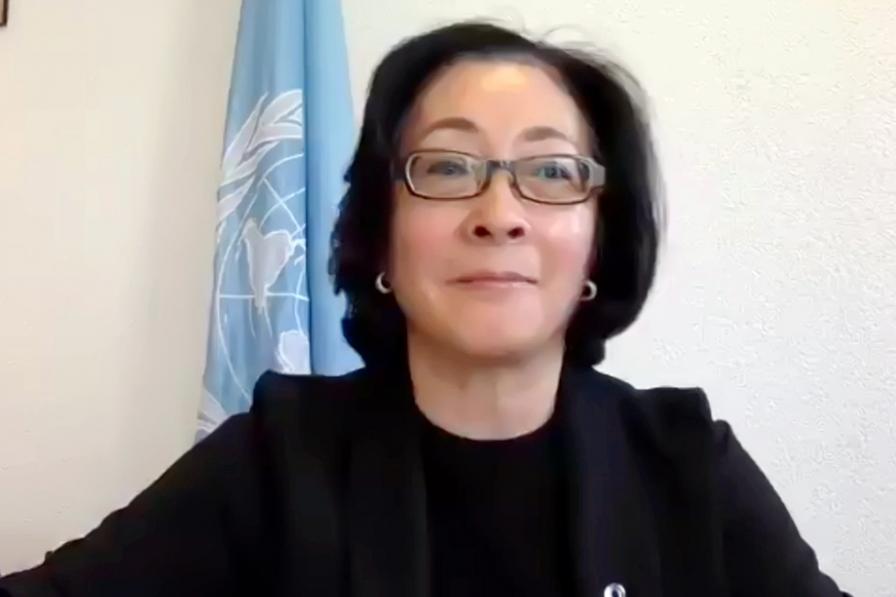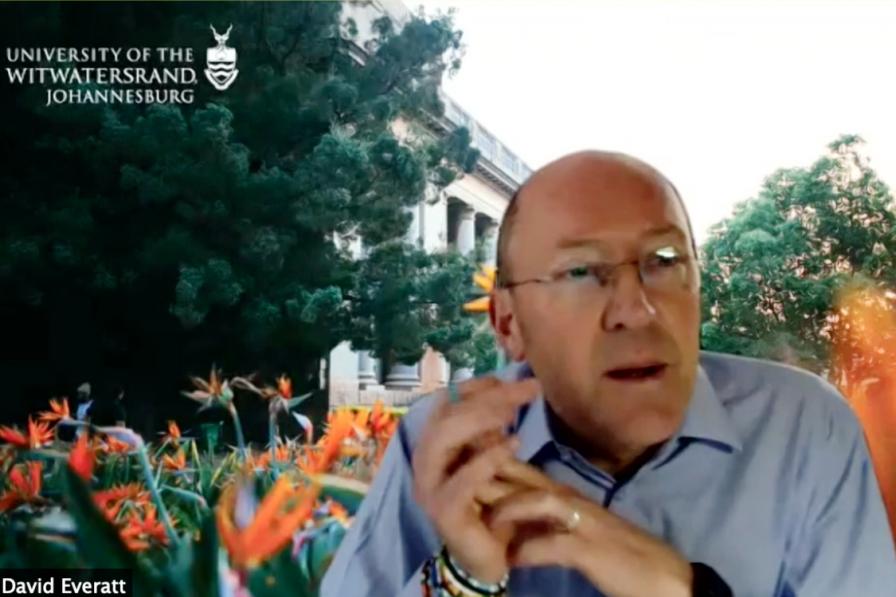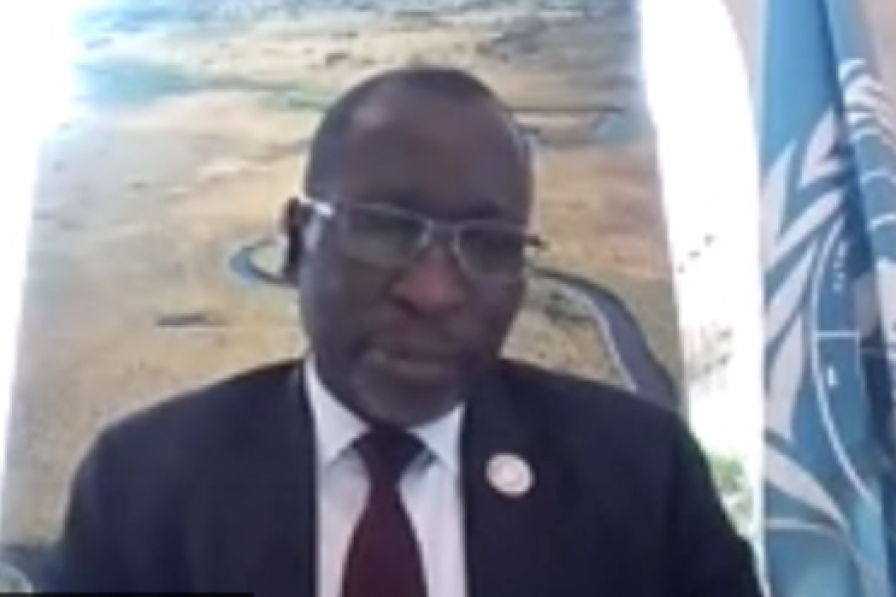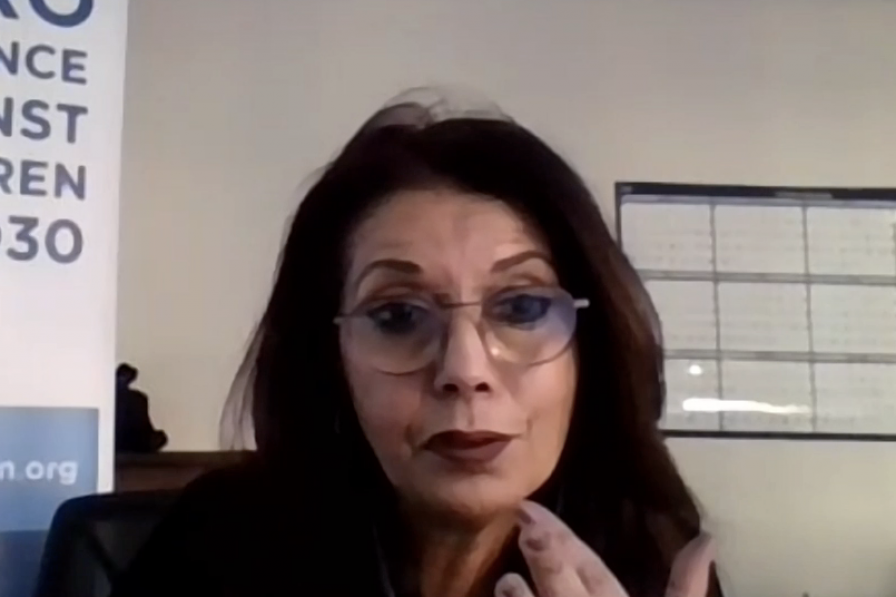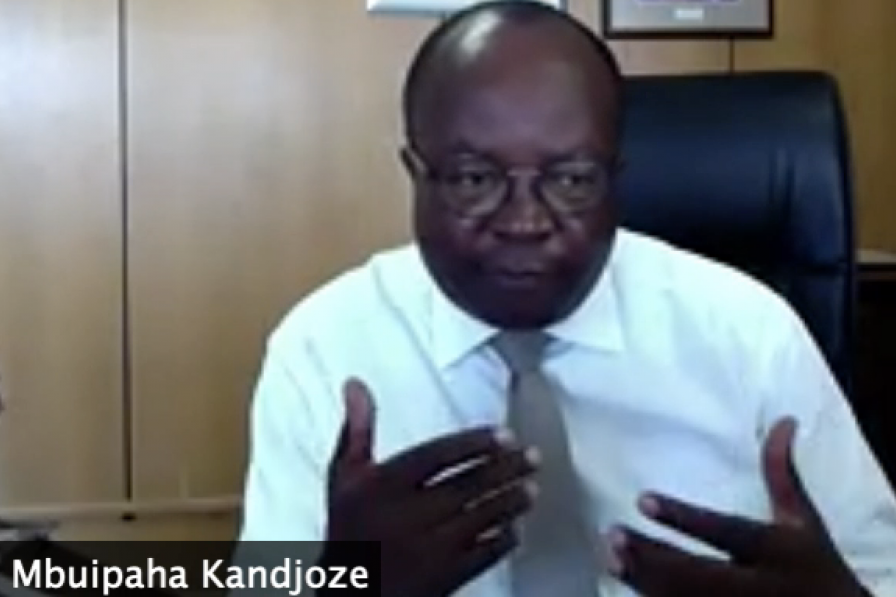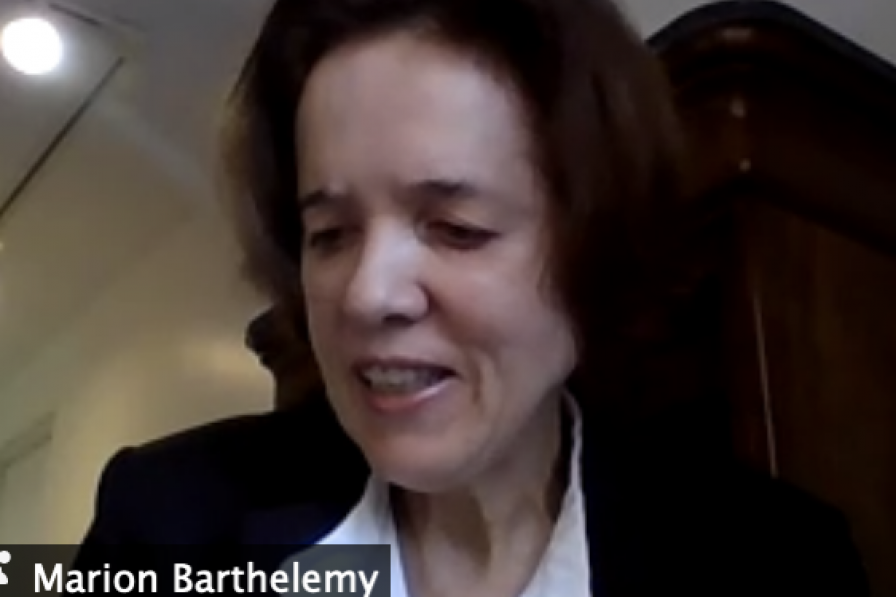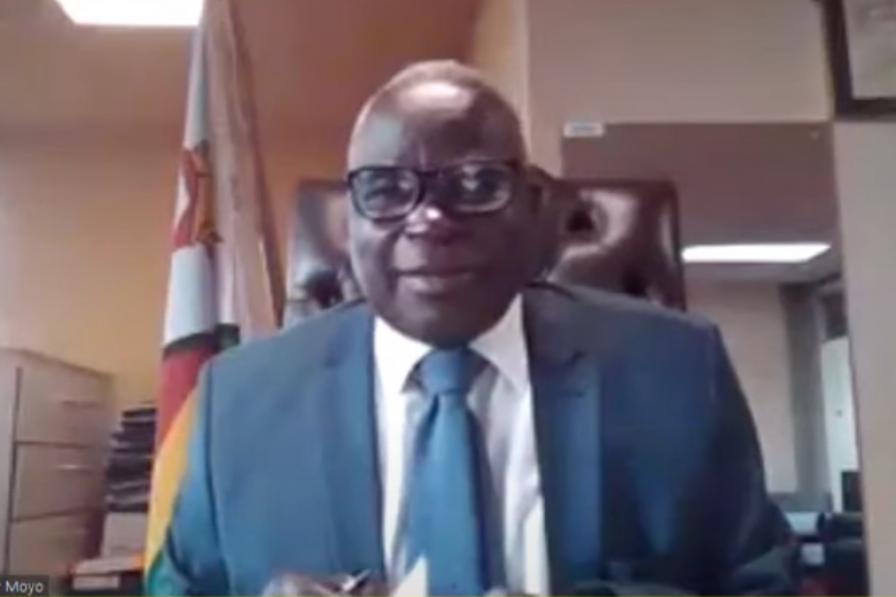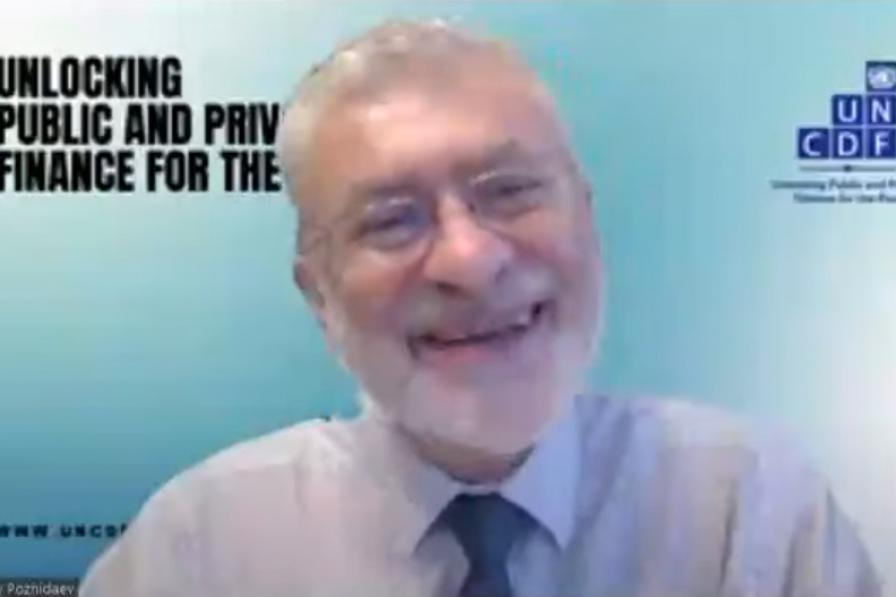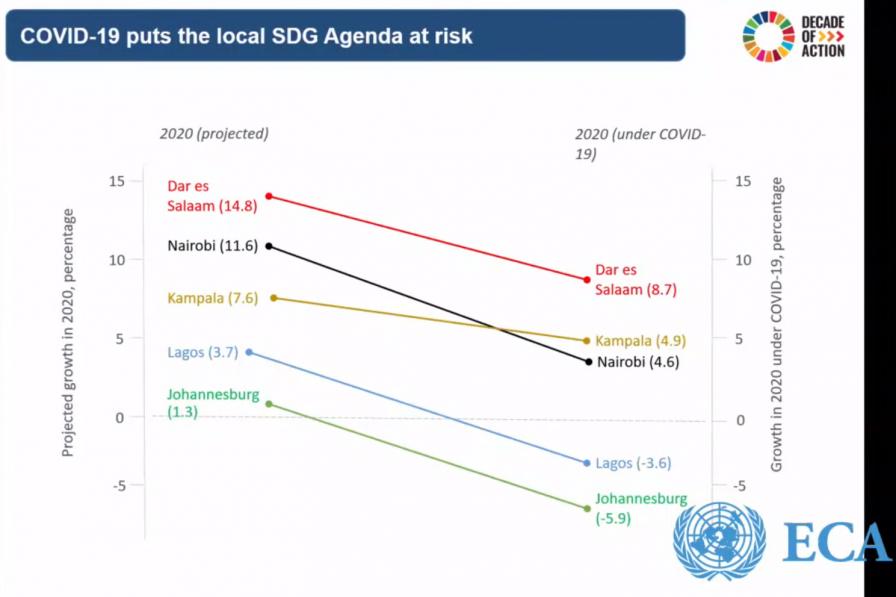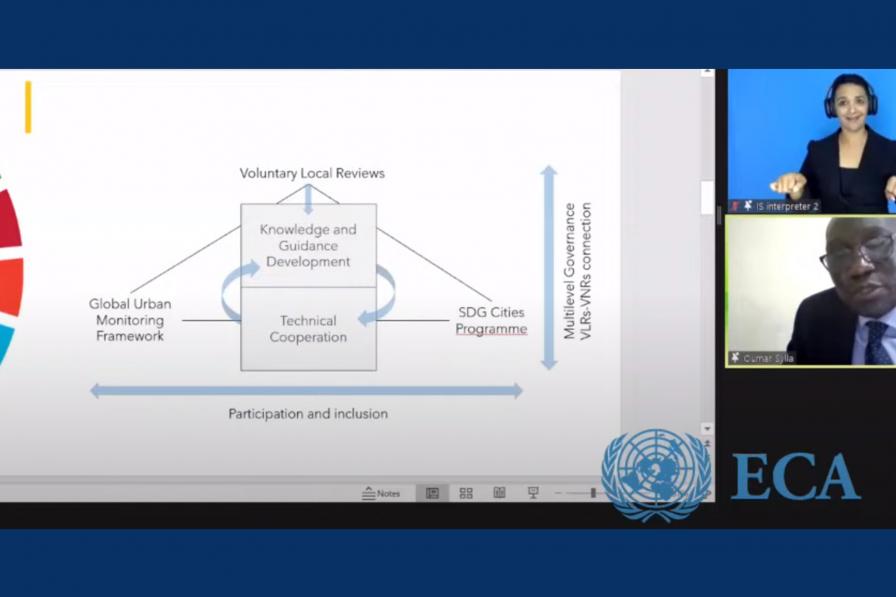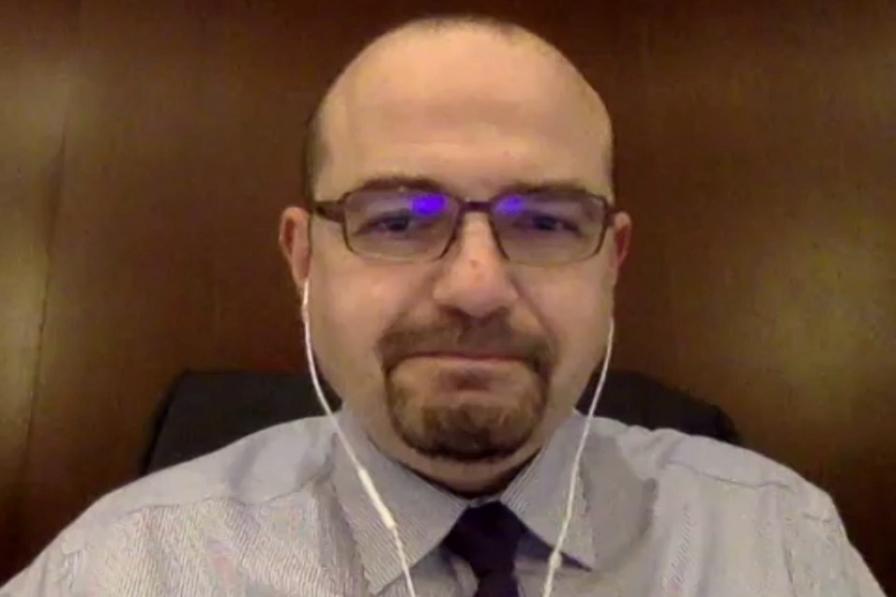The Seventh Session of the Africa Regional Forum on Sustainable Development (ARFSD-7) continued on Tuesday. Participants discussed progress made in the implementation of the UN’s 2030 Agenda for Sustainable Development and the African Union’s Agenda 2063: The Africa We Want, and responses to the COVID-19 crisis at the regional and subregional levels. Plenary round-table panels addressed data and statistics needs, voluntary national reviews (VNRs), and voluntary local reviews (VLRs).
A key takeaway from the discussions is that, at current rates, Africa is only likely to meet nine of the 169 targets of the 2030 Agenda.
Progress on the Implementation of the 2030 Agenda and Agenda 2063, and Tackling the COVID-19 Crisis at the Regional and Subregional Levels
Paul Mavima, Minister of Public Service, Labour, and Social Welfare, Zimbabwe, moderated the session, which featured two keynote presentations.
Bartholomew Armah, UN Economic Commission for Africa (UNECA), presented highlights from the 2020 Africa Sustainable Development Report. He stated fiscal deficits and debt are rising, and remittances are expected to fall due to the impacts of COVID-19. Armah urged building and strengthening social protection systems and called for investments in key areas such as health and governance. He advocated for investments in “green” sectors as they can create more jobs than “brown” sectors, and recommended tackling debt management to move forward successfully.
Tadele Ferede Agaje, UNECA, provided an overview of the Integrated Planning and Reporting Toolkit (IPRT), noting its key functionalities include: showcasing the alignment of the 2030 Agenda and Agenda 2063 at the goal, target, and indicator level; and assessing the degree of alignment by sector and dimension of sustainable development. He demonstrated the online dashboard, showing modules related to, among others: comparing countries’ national alignment with the Sustainable Development Goals (SDGs) and Agenda 2063; and assessing progress at the subregional level.
Plenary Round-table Panel on Meeting Data and Statistics Needs
This round-table addressed the availability of and access to accurate data and statistics for evidence-based implementation of and reporting on the 2030 Agenda and Agenda 2063. Panelists stressed the need to track progress in achieving the SDGs, calling for improved monitoring and evaluation systems, and for increased capacity for big data and digital literacy.
Plenary Round-table Panel on VNRs and Peer Learning to Strengthen Recovery from COVID-19
Marion Barthélemy, UN Department of Economic and Social Affairs (DESA) moderated this panel. Participants heard country perspectives from Botswana, Namibia, and Egypt, as well as statements from civil society and from Najat Maalla M'jid, Special Representative of the UN Secretary-General on Violence against Children.
Key messages from the session include:
- This year’s High-level Political Forum (HLPF) will provide a forum for countries to learn from one another on how to respond to the pandemic in a way that shifts countries onto green, inclusive pathways;
- The COVID-19 pandemic has had dramatic mental health effects and led to increases in violence against children, including in nexus with violence against women;
- Countries engaging in the VNR process for a second time value lessons learned from the first round of reviews, including on conducting whole-of-government consultations;
- Inclusive partnerships with civil society need to be fostered, and stakeholders should be empowered to contribute their expertise;
- Greater efforts for localizing both the 2030 Agenda and Agenda 2063 are needed; and
- Lack of data availability remains a challenge for monitoring progress in the region.
Plenary Round-table Panel on VLRs
This round-table focused on showcasing and exchanging experiences of African cities and subnational governments in conducting voluntary local reviews. Panelists highlighted that COVID-19 is putting the local SDG agenda at risk and that very few African local governments are “fiscally sustainable.”
Speakers noted that the informal sector, which is significant in Africa, is “delinked” from the VLR process, and stressed the need for reliable data, and financing for data collection. They further highlighted UN-Habitat’s Global Urban Monitoring Framework as a tool to support local and regional governments to elaborate VLRs.
Participants also underscored the need to rebuild local fiscal spaces for COVID-19 recovery. Another identified the critical need of bridging the digital divide, with one participant noting that half of the world’s young people live in Africa – but their talents and innovation cannot be used without digital transformation.
Session Chair Mehdi Remaoun (Algeria) closed the session by stressing the importance of local-level action. He underscored that there is no national COVID-19 recovery without local-level COVID-19 recovery.
Selected Photos
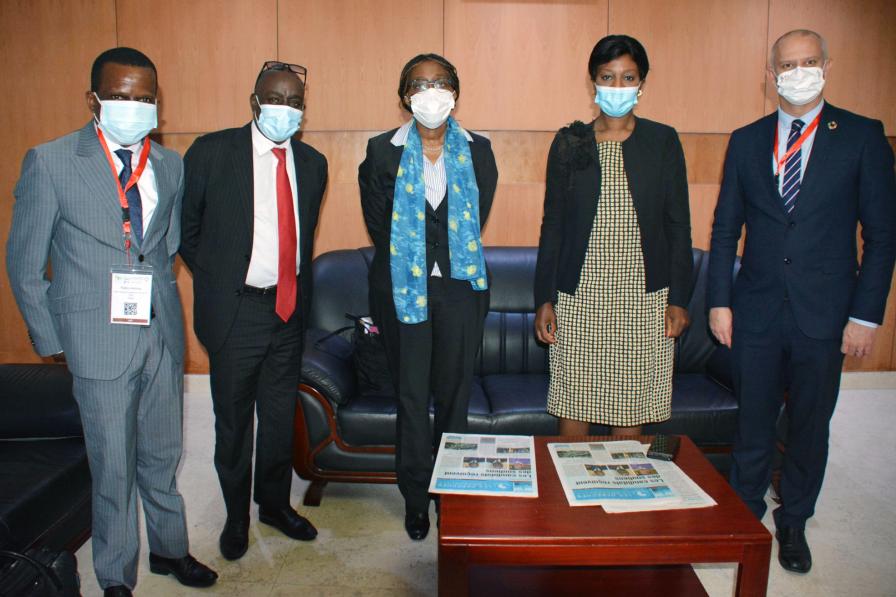
L-R: Antonio Pedro, Director UNECA Central Africa Office; Chris Mburu, UN Resident Coordinator, Republic of Congo; Vera Songwe, Executive Secretary, UNECA; Arlette Soudan-Nonault, Minister for Tourism and Environment, Republic of Congo; and Jean Paul Adam, UNECA

